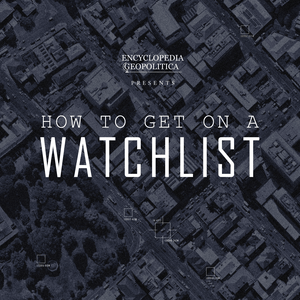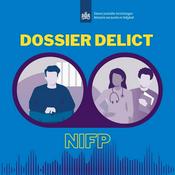31 afleveringen

How to Steal an Election
15-1-2025 | 1 u. 2 Min.
In this episode, we speak to Nicolás Prados of Southern Pulse about election fraud, election security, and how to steal an election. Nicolás Prados is Projects Lead at Southern Pulse, focusing mainly on political risk and organized crime. Originally from Spain, he has worked for a number of years in Mexico, before obtaining a DPhil in History and an MPhil in Latin American Studies from the University of Oxford. Prior to joining Southern Pulse, he taught Latin American history at University College London and at the University of Oxford, and collaborated with a number of media outlets from Spain, Mexico and Colombia. His academic and professional interests focus on the challenges of establishing democracies in unstable contexts.If you enjoyed this episode, don’t forget to subscribe on your podcast platform of choice. Please also consider supporting our work via a Patreon subscription (getting you access to early releases and other perks), or by tipping us on Ko-fi. While the topics we discuss here are often shrouded in secrecy and security classifications, we really hope you’ll tell your friends about us!

How to Stalk a Celebrity
08-1-2025 | 1 u. 5 Min.
In this episode, we speak with Dr. Angela Lewis and Caleb Gilbert on stalkers, bodyguards, protective intelligence, and the world of celebrities. Dr. Angela Lewis is the Head of Global Intelligence, Investigations, and Threat Management for a talent agency that represents many of the most well-known sports and entertainment figures; she is also an adjunct professor and teaches intelligence courses for Georgetown University, the University of Cincinnati, and the University of New Hampshire. Prior to working in the private sector, Dr. Lewis served as a senior counterterrorism targeting officer in the CIA's Directorate of Operations with multiple tours abroad. She holds her PhD from Pepperdine University, where her studies focused on leveraging intelligence for strategic decision-making.Caleb Gilbert is the Founder & President of White Glove Protection Group, with over two decades of experience in Executive Protection for clients across the Fortune 100 and 200, as well as Private Family Offices. His expertise spans Close Protection for A-List celebrities, ultra-high-net-worth individuals, and corporate protection and intelligence teams. A Certified Protection Specialist from Executive Security International, Caleb holds an Associate’s degree in Homeland Security and an undergraduate degree in Security Management from Southwestern College. He also earned a Graduate Certificate in International Security from Stanford University and a Master’s degree in Global Security Studies from Johns Hopkins University. Caleb makes numerous contributions to the Executive Protection community, including as Vice Chair of the ASIS International’s Executive Protection Community. In this role, he champions initiatives supporting Women in Protection, Mentorship, and Leadership Development. Caleb also serves on the Board of Directors for the International Protective Security Board (IPSB).If you enjoyed this episode, don’t forget to subscribe on your podcast platform of choice. Please also consider supporting our work via a Patreon subscription (getting you access to early releases and other perks), or by tipping us on Ko-fi. While the topics we discuss here are often shrouded in secrecy and security classifications, we really hope you’ll tell your friends about us!

How to Steal a Masterpiece
01-1-2025 | 1 u. 2 Min.
In this episode, we chat with Robert K. Wittman on art robberies, heists, and protective security in the art world. Robert K. Wittman is the former Senior Investigator and Founder of the US Federal Bureau of Investigation's National Art Crime Team. Robert joined the FBI as a Special Agent in 1988 and during his 20 year career with the Bureau, he recovered more than $300 million worth of stolen art and cultural property. He has represented the United States around the world conducting investigations and instructing international police departments and museums in investigation, recovery and security techniques. In 2008, Robert retired from the Bureau and brought his expertise to the private sector, where he helps clients mitigate risks related to theft, fraud and forgery. Since its inception, Robert Wittman Inc. has grown to also provide protection and recovery services to more than 100 public and private collections worldwide. In 2010, Robert Wittman penned and published the New York Times best-selling memoir “Priceless: How I Went Undercover to Rescue the World’s Stolen Treasures”.If you enjoyed this episode, don’t forget to subscribe on your podcast platform of choice. Please also consider supporting our work via a Patreon subscription (getting you access to early releases and other perks), or by tipping us on Ko-fi. While the topics we discuss here are often shrouded in secrecy and security classifications, we really hope you’ll tell your friends about us!

How to Close a Shipping Lane
25-12-2024 | 1 u. 21 Min.
In Season 1, we talked about “How to hijack a ship”, and earlier in this season, we talked about “How to deliver a ransom”. Today, we’re following on from these two episodes to discuss “How to close a shipping lane” with three fantastic guests.Firstly, we have Daniel Giordanio. Daniel is the Senior Threat Intelligence Manager at shipping giant AP Moller Maersk, where he focuses on assessing and mitigating threats to the company’s global operations and workforce. Prior to Maersk, Daniel had a fifteen-year career in the United States Federal Bureau of Investigation, with his final position as the FBI’s Assistant Legal Attaché for Intelligence at the US Embassy in Copenhagen. His focus was on ensuring cross-collaborative intelligence sharing on a wide range of threats with Nordic intelligence and security partners. Daniel worked a multitude of threats with the FBI in the United States, and was instrumental in the identification and eventual capture of Rafael Caro Quintero, an FBI Top Ten Most Wanted Fugitive, and leader of the Sinaloa Cartel in Mexico. In Washington, DC, he worked on a high-profile task force to address espionage concerns across the US Intelligence Community, and did a joint-duty assignment at the US Central Intelligence Agency, developing collaborative cross-agency intelligence efforts to counter threats to US national security.Joining Daniel, we also have Encyclopedia Geopolitica’s own Anthony Clay, as well as one of this show’s cohosts, Cormac McGarry.Anthony Clay is a retired US Navy Surface Warfare Officer where he specialised in amphibious warfare and expeditionary operations. He is currently a Senior Strategic Planner in the Department of Defense where he has worked on diverse issues, with focuses on Logistics, Nuclear Weapons, and Space Warfare.Cormac Mc Garry is the Director for Maritime Security at Control Risks, a global specialist risk management consultancy. He helps a range of clients, from ship owners and manufacturers to insurers and law firms, understand risk in the maritime word. He also teaches on the topic as an Adjunct Professor at Sciences Po Paris and has previously worked in East Africa, the Irish Defence Forces and the National Maritime College of Ireland.If you enjoyed this episode, don’t forget to subscribe on your podcast platform of choice. Please also consider supporting our work via a Patreon subscription (getting you access to early releases and other perks), or by tipping us on Ko-fi. While the topics we discuss here are often shrouded in secrecy and security classifications, we really hope you’ll tell your friends about us!

How to Kill Your Enemies
18-12-2024 | 54 Min.
Today, we speak with Professor Luca Trenta on assassinations, targeted killings, and the history of such tactics.Dr Trenta is an Associate Professor in International Relations in the Department of Politics, Philosophy, and International Relations, Swansea University. His research focuses on the US government’s involvement in the assassination of foreign officials from the Cold War to the present day. He is widely published in the field of covert action, foreign policy, risk, and presidential decision-making. His latest book, “The President's Kill List: Assassination in US foreign policy since 1945” is available from Edinburgh University Press and will be linked in the show notes.If you enjoyed this episode, don’t forget to subscribe on your podcast platform of choice. Please also consider supporting our work via a Patreon subscription (getting you access to early releases and other perks), or by tipping us on Ko-fi. While the topics we discuss here are often shrouded in secrecy and security classifications, we really hope you’ll tell your friends about us!
Meer Overheid podcasts
Trending Overheid -podcasts
Over How to get on a Watchlist
Luister naar How to get on a Watchlist, Ondertussen aan de Hofvijver en vele andere podcasts van over de hele wereld met de radio.net-app

Ontvang de gratis radio.net app
- Zenders en podcasts om te bookmarken
- Streamen via Wi-Fi of Bluetooth
- Ondersteunt Carplay & Android Auto
- Veel andere app-functies
Ontvang de gratis radio.net app
- Zenders en podcasts om te bookmarken
- Streamen via Wi-Fi of Bluetooth
- Ondersteunt Carplay & Android Auto
- Veel andere app-functies


How to get on a Watchlist
download de app,
luisteren.



























